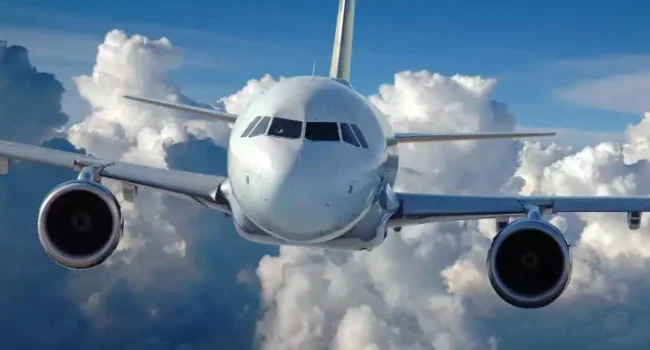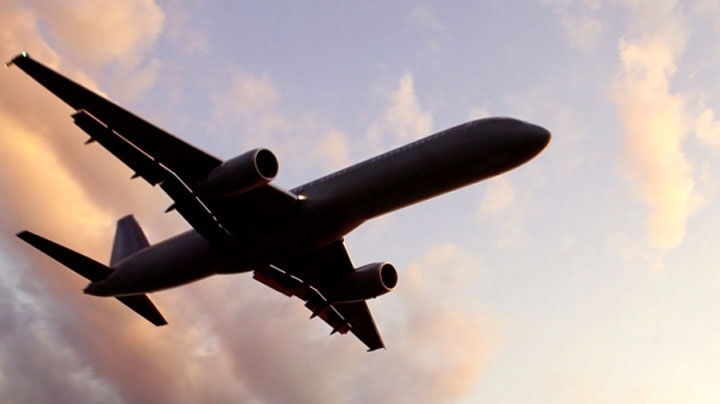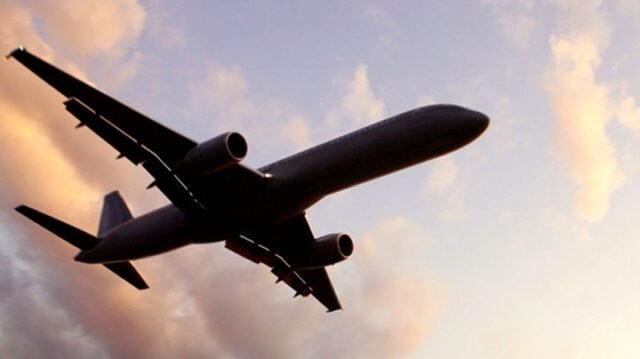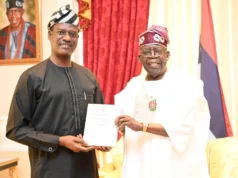The Nigeria Civil Aviation Authority (NCAA) has drawn a new line in the skies. As of August 20, 2025, passengers flying in Nigeria can no longer rely on “flight mode” to keep their phones and gadgets active once the aircraft doors are shut. Instead, the new directive demands that all mobile phones and electronic devices must be completely switched off during take-off and landing.
This is not a minor tweak. For years, Nigerian travellers have lived in a grey zone where “flight mode” was seen as an acceptable compromise. Switch your phone to flight mode, and you could still scroll through offline music, flip through saved notes, or write emails that would queue for later. But with this new NCAA order, that convenience is being cut off.
The aviation regulator insists the decision is about safety, discipline, and restoring order in Nigerian skies. Capt. Chris Najomo, NCAA’s Director-General, made it clear at a press briefing in Abuja: “All mobile phones, I repeat, all mobile phones and other portable electronic devices should be switched off during the critical phases of flight. Switched off.” His repetition was deliberate.
This isn’t just a matter of electronics. It’s a matter of culture—of passengers understanding that air travel is not the place to argue over personal preferences.
Table of Contents

Why Did NCAA Ban Reliance on Flight Mode?
Behind every regulatory hammer lies a story, and in this case, the tipping point was an unpleasant altercation on an Ibom Air flight.
A passenger, Comfort Emmanson, reportedly refused to switch off her phone even after repeated instructions from crew members. The disagreement escalated, drawing attention across the cabin and eventually delaying procedures. What should have been a straightforward request turned into a confrontation, forcing Ibom Air to take the matter seriously.
For NCAA, this was a red flag. Such incidents are not rare—flight attendants across Nigeria often face resistance from passengers who believe flight mode is “good enough”. The problem is that once defiance becomes public, it can spread. One passenger refuses today, ten may refuse tomorrow. It creates an unsafe environment not just technically but socially.
Capt. Najomo linked the policy shift to a growing pattern of unruly passenger behaviour. In his words, “We cannot allow a culture where passengers think they can pick and choose which safety instructions to obey. Aviation does not work that way.”
Global aviation guidelines already lean toward stricter interpretations. While some countries allow in-flight Wi-Fi and selective device use, enforcement depends on clear protocols, certified equipment, and airlines investing heavily in shielded communication systems. Nigeria’s aviation infrastructure, by contrast, is still developing. Until safety can be guaranteed under international best practices, the NCAA prefers to err on the side of caution.
How NCAA Plans to Enforce the Directive
Rolling out a new rule in aviation isn’t as simple as sending a memo. The NCAA has prepared a two-pronged approach: public awareness and airline enforcement.
- Public Awareness Campaign:
The regulator will launch an outreach campaign through TV, radio, and social media, hammering home one key message: flight mode is no longer enough. Passengers will see and hear the rule long before they get to the airport. The aim is to make compliance second nature, not a last-minute surprise. - Airline Responsibility:
Airlines have been ordered to update their operation manuals and in-flight safety announcements. From pre-boarding briefings to final descent reminders, crews will be instructed to stress that devices must be fully powered down. Failure to follow the rule could place the airline at risk of penalties, so carriers are expected to take it seriously. - Disciplinary Measures for Non-Compliance:
Though Capt. Najomo didn’t disclose exact sanctions, past NCAA behaviour suggests that passengers who resist could face consequences ranging from fines to being placed on a no-fly watchlist. For airlines, non-enforcement could lead to regulatory investigations.
It’s worth noting that Nigeria is not acting in isolation. Similar rules are still common in parts of Asia and Africa, where aviation regulators believe stricter control ensures consistency in safety practice. The NCAA is effectively signalling: Nigeria’s airspace will not tolerate disorder.

What This Means for Nigerian Travellers
So what does this look like in practice? For the average Nigerian traveller, this is less about technology and more about attitude. Here are a few realities passengers must now accept:
- Phones Must Be Completely Off During Critical Phases
Once the crew announces “doors to manual, prepare for take-off,” your phone needs to be off, not just idle. The same applies during descent until the aircraft taxis to a full stop. - Disputes Will Not Be Tolerated
The Ibom Air incident is a warning. Arguing with flight attendants over your phone is no longer a small matter. Resistance could have legal or financial consequences. - Expect Longer Briefings and Reminders
Airlines will repeat the instruction more than before. Think of it like seatbelt announcements—tedious, yes, but routine. - Shift in Passenger Culture
For some travellers, the change will sting. Students finishing assignments, businesspeople drafting deals, or even children playing offline games will now have to pause. But in the bigger picture, this is about learning to prioritise collective safety over personal convenience.
In truth, Nigeria is trying to avoid bigger risks. With air travel increasingly crowded and Nigerian airlines under pressure to prove global safety standards, any perception of lax enforcement could hurt both reputation and passenger trust.
There’s also a psychological angle. By enforcing a strict “off” rule, the NCAA removes the grey area that often leads to arguments. Flight attendants no longer have to debate whether “flight mode” is safe—they simply have to enforce “off”.

Conclusion: The Sky Has New Rules
The NCAA’s ban on relying on flight mode in Nigeria is more than just another aviation directive. It is a statement of intent: that Nigerian aviation will place discipline and safety above convenience.
For passengers, the message is simple. Pack your patience, enjoy the view from 30,000 feet, and remember: your phone can wait until the wheels hit the tarmac. In an era where phones rule our lives, perhaps this forced disconnection is also a reminder—sometimes, safety comes from simply switching off.
Join Our Social Media Channels:
WhatsApp: NaijaEyes
Facebook: NaijaEyes
Twitter: NaijaEyes
Instagram: NaijaEyes
TikTok: NaijaEyes





